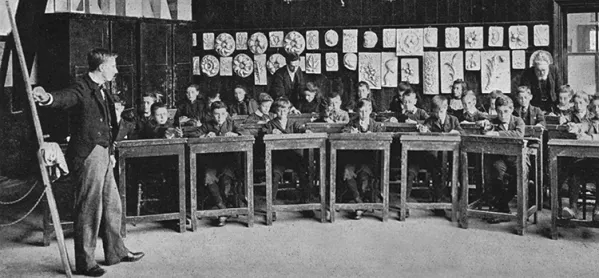- Home
- ‘There’s more to teaching than direct instruction’
‘There’s more to teaching than direct instruction’

Much is currently being made of the benefits of direct instruction. Analyses, meta-analyses and meta-meta-analyses are being quoted on Twitter and other platforms proclaiming its efficacy. Ofsted’s director of research supports it. As if discovering it for the first time, some headteacher-pundits proclaim its virtues and quote American research studies from the 1960s to back it up. Schools minister Nick Gibb is a firm advocate, as is Katharine Birbalsingh, of Michaela Community School.
In his perceptive and convincing portrayal of that school, Jon Severs captures its essence, both negative and positive:
“So you won’t see group work at Michaela. You won’t see discussion tasks beyond very limited pair work. You definitely won’t see expeditionary learning or open-ended project work. Instead, you see lesson after lesson where a teacher will walk children through knowledge content from the front, punctuating their lecture with drills, quizzes and recall exercises…You won’t see too many questions, either. Free interpretation of the content is discouraged; the teacher is the expert.”
Very few would seriously deny that direct instruction has a place in the repertoire of primary pedagogy. Even the much reviled and much misunderstood Plowden Report of the “Swinging Sixties” acknowledged that “from the start, there must be teaching as well as learning” and that “we certainly do not deny the need for the practice of skills and consolidation of knowledge”. But in the past 20 years or so direct instruction has been increasingly prevalent as a response to the hard-line demands for performance-related accountability based on league tables, test results and test-informed Ofsted judgements. That has resulted in many, but not all, primary schools narrowing not only of the primary curriculum but also teaching and learning.
Lessons from history
But, of course, there is more to teaching than instruction, more to learning than reception of received “wisdom”.
It has never been more effectively criticised than by Harriet Finlay-Johnson, the headteacher of Sompting Elementary School, in her book The Dramatic Method of Teaching, published over a century ago in 1912. Her comments should cause pause for reflection among those advocating unreflecting adherence to direct instruction. She observes:
“I wonder if people ever reflect on the enormous number of facts which are talked into children in elementary schools for probably seven whole consecutive years! How monotonous it must become, although the child may not realise that it is monotony! Why should it be considered so virtuous a thing for a class of children to sit still and listen while a teacher (who is probably very tired of it) takes on every subject and adopts what I call the ‘stand-and-deliver attitude’ and demands from the children opinions which they have not, as yet, formed. The whole lecture and question-and-answer system appears to me now to be so dead - so utterly devoid of life! If we are anxious to obtain a child’s opinions and to find out what he really knows (and consequently will remember), we should confront him with what he may be expected to be able to assimilate, and should throw the whole responsibility on to him: in other words - it is useless to eat the child’s food for him; he must eat it himself.”
She continues:
“I am quite sure that the type of so-called education which contents itself with such present ‘results’ as a piece of composition, immaculately penned and all correctly spelled, while it may exhibit a glaring paucity of ideas, or if it is satisfied if it can show ‘four sums right and neatly worked’, is a very poor pretence at educating worthy men and women for the battle of life.”
There are, indeed, complements to, though not substitutes for, direct instruction. Those wedded to that one-dimensional view of teaching and learning focused on direct instruction would do well to heed Harriet’s strictures and Hamlet’s observation: “There are more things in heaven and earth, Horatio, than are dreamt of in your philosophy.” Katharine Birbalsingh and her followers take note.
Colin Richards is a retired senior HMI
Keep reading for just £1 per month
You've reached your limit of free articles this month. Subscribe for £1 per month for three months and get:
- Unlimited access to all Tes magazine content
- Exclusive subscriber-only stories
- Award-winning email newsletters



